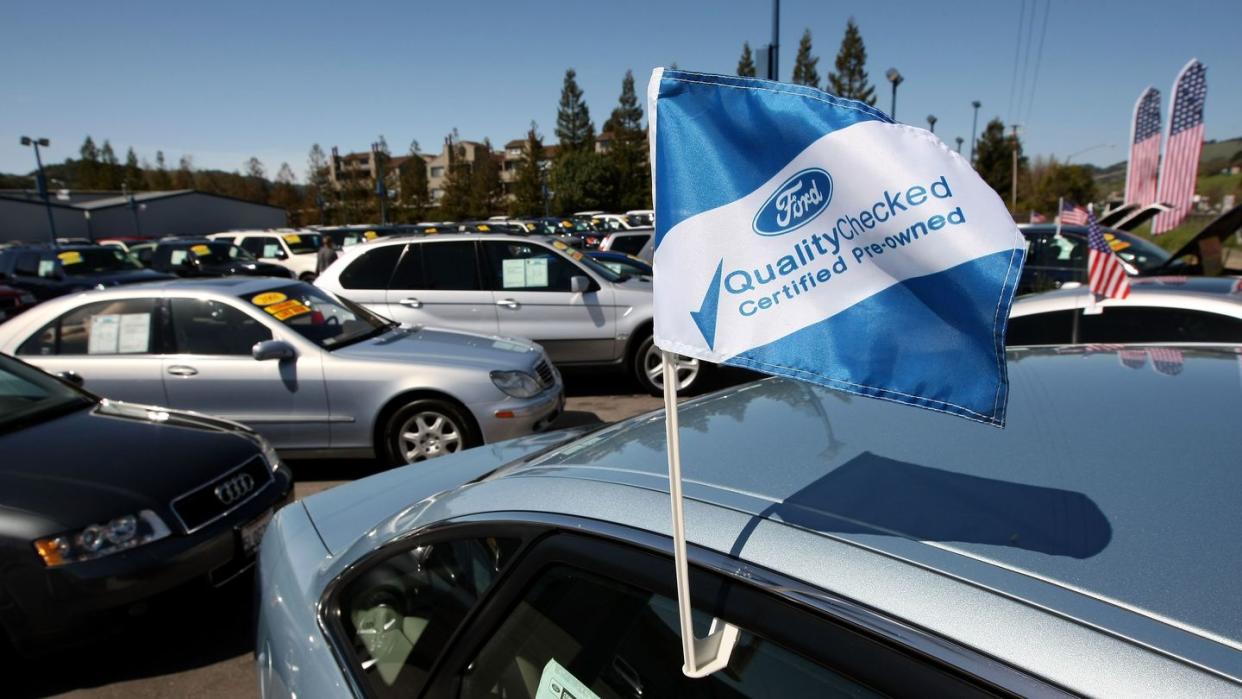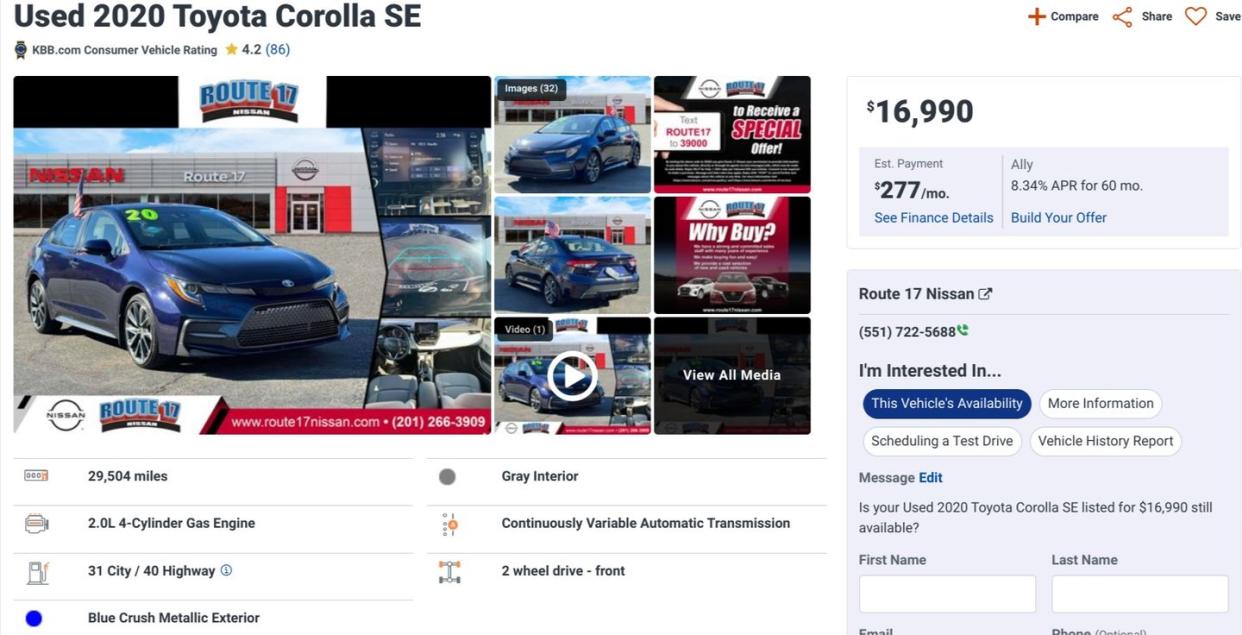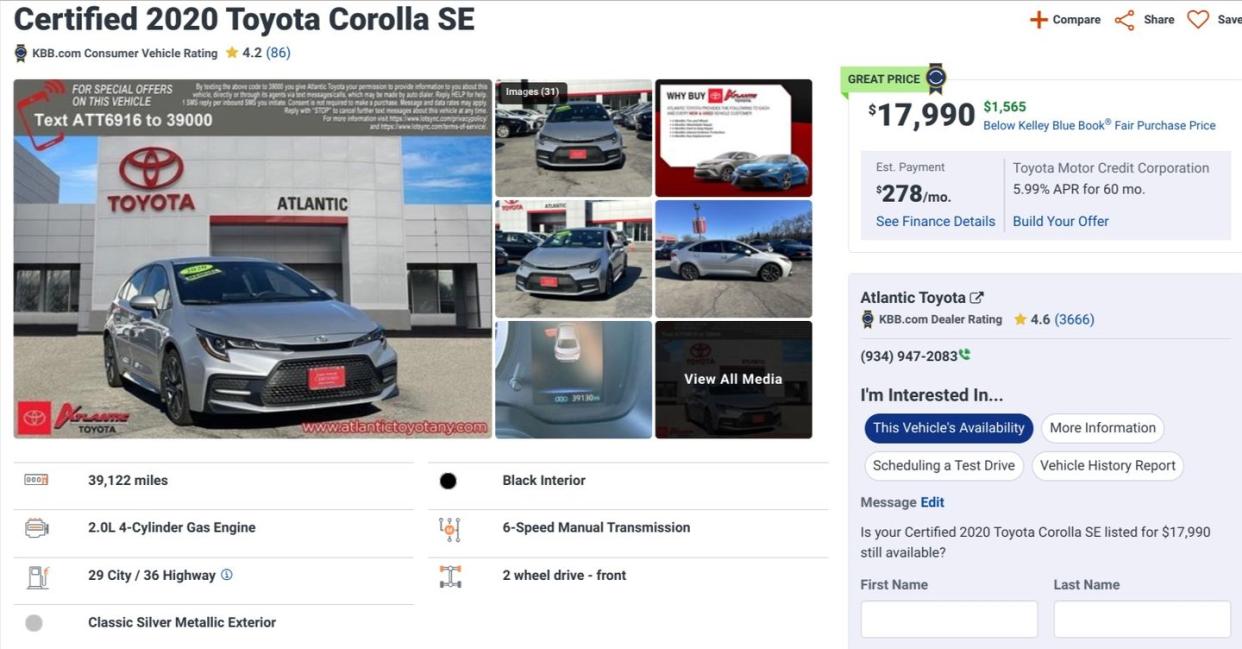What Certified Pre-Owned Means and When It’s Worth the Extra Cost

With used car pricing finally returning to normal, car buyers have more choices regarding getting a value. Buyers who want to mitigate the risk of a used car will often look to manufacturer “certified” models for extra peace of mind, but this might not always be the best strategy.
What Is a Certified Pre-Owned Car?
A manufacturer “certified” pre-owned (CPO) car is a used model that supposedly has undergone some sort of quality check and reconditioning that qualifies it for “certified” status.
Usually, a car that qualifies as a “certified pre-owned” model would have to have a consistent service history, adhere to a standard in regard to the condition, and/or may have to have a vehicle history that is free from recorded accidents.
Often, these cars get some kind of extension on either their remaining factory new-car warranty balance or in the case where the original warranty has expired, some brands offer a short-term warranty coverage from the date of purchase.
What Kinds of Cars Qualify as CPO?
Where things can get confusing for car buyers is what qualifies a vehicle as “certified” varieties based on the automaker. Most brands target “lightly used” models that are within one to five years old for the certification process. There is also typically a milage cap for certified models. However, some automakers will certify older cars with a bit more age. Porsche has been known for certifying cars up to eight years old and under 100,000 miles. Recently Honda and Toyota have begun to offer modified CPO programs to cars up to 10 years old and up to 100,000 and 125,000 miles respectively.
The CPO market is most popular in the lightly-used luxury space, as these cars tend to be around two or three years old and coming off of a lease.
What Is Covered Under the CPO Warranty?
A certified pre-owned warranty is typically an extension of the factory coverage, as to how that extension works all comes down to the details. Warranty programs break down into two main categories. There are comprehensive warranties, also known as bumper-to-bumper. These programs cover the majority of the car’s components outside of wear items like brakes and tires. There are also powertrain warranties that handle the major components such as the engine, transmission, and drivetrain.
Luxury brands like BMW, Audi, and Mercedes offer unlimited-mile comprehensive warranties, but the time period is usually only one or two years after the standard four-year warranty has expired. Subaru offers a seven-year/100,000 warranty starting from the original sale date, but that coverage only applies to the powertrain. On the other hand, Hyundai and Kia, automakers known for their long warranties do not make the famous 10-year/100,000 powertrain coverage transferable to the second owner. It’s only if you buy a CPO Hyundai or Kia do you retain the balance of that long coverage. Most brands offer some kind of combination of comprehensive and powertrain coverage for their CPO programs. Car buyers will want to make sure they research their desired brand to see what kind of warranty is offered for that CPO program.
Are CPO Cars Worth the Extra Cost?
Like most car-buying conundrums, the answer is “it depends.” Generally speaking, for cars that are known for their build quality and reliability such as Lexus, buyers may not get as much value if they are paying a premium for a CPO model. On the other hand, folks in the market for a four-year-old Land Rover may want to hedge their bets when it comes to out-of-pocket repairs by focusing on CPO models.
Pre-owned car shopping is less about getting the biggest discount and instead focuses on getting the best value. Therefore, when shopping for certified versus non-certified cars, a unit with CPO coverage adds to the value score of that model but other factors need to be taken into account.
For example, I was shopping for a used BMW 3 Series, and I came across two leads, both were only one year old. The first lead was a BMW CPO car but it had a recorded accident on the Carfax, the other was not BMW-certified but was being sold at a Porsche dealer. It was a one-owner car with a regular service history and was in excellent condition. While I would normally lean on the CPO for used luxury cars, in this case, the non-CPO model was the better buy.
On the other hand, if you examine these two listings for used Corollas.
Here we have a 2020 Corolla SE with just under 30,000 miles for $16,990. The Carfax indicates an accident history.

In the same region, you can also find this Toyota Certified car:

This car has 39,000 miles and an asking price of $17,990. However, the fact that it does have the Toyota Certified extended warranty and a clean vehicle history, seems to justify the $1000 premium over the blue car even though this one has higher miles.
Of course, these are just market samples of certified versus non-certified cars, and unlike new cars, there are a lot of variables to take into account when comparing the value scores for pre-owned models. Generally speaking, if all other variables are the same or similar (year, miles, trim) if the price of the certified car is close, it’s probably worth going that route.
I would caution buyers not to exclusively focus on CPO cars when shopping in the pre-owned market. Doing so can limit your inventory too much. Often you can find quality leads that just happen to be sold by a competing brand’s dealer group (i.e. a used Mercedes at an Audi dealer). While a certified car may help reduce your risk of buying a poor-quality used car, it's just one factor among many in determining what is a solid buy.
You Might Also Like
